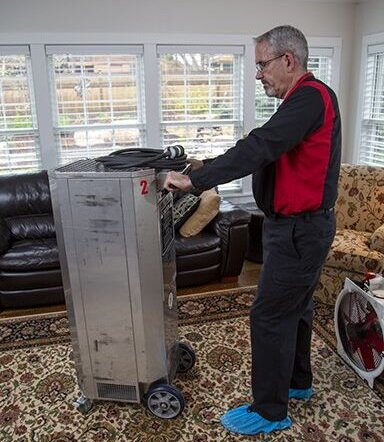Kings Cincinnati Pest Control Companies: Reliable Services
Kinds Of Parasite Control: Which Approach Is Right for Your Invasion?
When confronted with a bug invasion, the choice of a proper technique for bug control is crucial in effectively managing the scenario. From chemical therapies to biological services, there exists a range of techniques that can be employed to resolve various kinds of parasites. Each approach includes its own set of advantages and factors to consider, making the decision-making process a nuanced one. Understanding the nuances of each strategy and reviewing their compatibility with the particular insect problem available is vital for achieving lasting success in insect administration. By checking out the various kinds of pest control techniques offered, people can make educated decisions customized to their distinct scenarios, making certain an extra effective and lasting outcome in parasite eradication.
Chemical Pest Control
Chemical bug control entails using synthetic or naturally obtained chemicals to manage and remove pest populaces effectively. This method is frequently made use of in agriculture, forestry, and domestic setups to deal with a wide range of bugs, including bugs, rats, and weeds. Using chemical pesticides can give fast and targeted services to pest problems, making it a preferred option for many individuals and companies.
One of the crucial benefits of chemical bug control is its capacity to promptly remove parasites, reducing the risk of damages to plants, property, and human health. By utilizing specific chemicals that target certain parasites, this approach can properly regulate invasions while lessening damage to useful organisms and the environment when used appropriately.
Nonetheless, making use of chemical bug control also raises concerns concerning prospective unfavorable effects on non-target varieties, water sources, and human health. It is crucial to adhere to security guidelines, use chemicals properly, and think about alternative parasite control techniques to reduce these threats and guarantee sustainable parasite administration practices.
Organic Insect Control
Organic pest control, also understood as biocontrol, makes use of living organisms to manage and decrease pest populations normally. By making use of the bug's natural predators or microorganisms, organic parasite control offers a environmentally friendly and lasting solution to pest management.

Mechanical Insect Control
Using hand-operated and physical techniques to manage bug populations, mechanical parasite control supplies an alternative strategy that does not count on using living microorganisms or artificial chemicals. This technique involves the usage of obstacles, traps, or various other devices to literally prevent or eliminate parasites. By blocking parasite entrance points or establishing up traps to capture them, mechanical pest control can properly reduce problems without introducing chemicals right into the environment.
One typical instance of mechanical insect control is the usage of mesh screens on doors and windows to avoid pests from entering structures. This straightforward yet efficient approach serves as a physical obstacle, keeping bugs out while enabling proper air flow. In addition, devices like mousetraps, fly swatters, and ultrasonic repellents fall under the mechanical parasite control category.
While mechanical insect control techniques can be labor-intensive and require routine tracking and upkeep, they offer a ecologically friendly and sustainable option for taking care of pest infestations. By integrating various mechanical techniques, residential or commercial property proprietors can develop a thorough pest control method that minimizes dependence on chemical pesticides.
Physical Parasite Control

Some typical physical pest control approaches include the usage of barriers such as webs or screens to prevent bug entry, catches to catch and eliminate pests, and hand-picking to physically get rid of pests from plants or frameworks. Additionally, strategies like heat therapies can be used to manage pests like bed insects by raising the temperature to degrees that are lethal to the bugs.
Physical parasite control is especially valuable in integrated pest monitoring (IPM) techniques, where numerous pest control techniques are incorporated for effective bug monitoring while reducing making use of chemicals. By utilizing physical insect control strategies, people can efficiently attend to pest invasions with very little ecological influence.
Integrated Pest Administration
When applying physical parasite control methods as part of insect administration approaches, Integrated Pest Management (IPM) becomes a detailed strategy that leverages various techniques to efficiently manage pest populations. IPM concentrates on long-term prevention of bugs with a mix of organic, social, physical, and chemical devices customized useful source to certain parasite concerns. By incorporating numerous control methods, IPM intends to decrease the threats related to pests while also reducing dependence on chemical remedies.
One trick aspect of IPM is the focus on monitoring and assessing pest populaces to establish one of the most ideal control approaches. This positive method enables early treatment and targeted approaches, bring about a lot more effective pest management. In addition, IPM advertises eco-friendly practices by focusing on non-chemical control techniques and just using pesticides as a last option.
Final Thought

By using the insect's natural predators or pathogens, biological pest control provides a sustainable and eco pleasant option to pest monitoring. - Kings pest control cincinnati oh
Making use of hands-on and physical methods to manage pest populaces, mechanical bug control provides an alternative approach that does not count on the usage of living organisms or artificial chemicals.A reliable method to handling pest populaces without depending on chemical or biological approaches includes the use of physical parasite control methods.When applying physical bug control methods as component of insect management approaches, Integrated Insect Monitoring (IPM) emerges as a comprehensive strategy look here that leverages different methods to effectively manage pest populations. Chemical pest control involves the use of pesticides, biological bug control uses natural killers, mechanical bug control involves physical obstacles, physical pest control consists of trapping or eliminating pests, and incorporated insect management integrates multiple techniques for an all natural method to pest control.